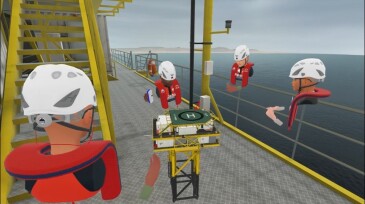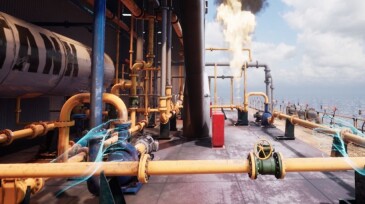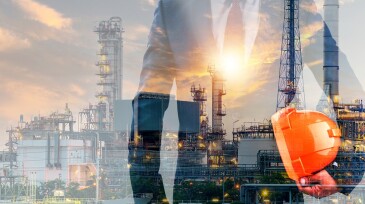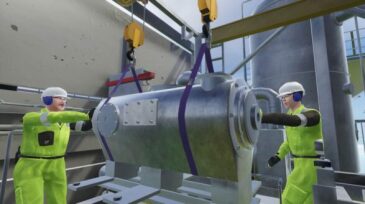training
-
This paper shows real case applications from two organizations where a Permanent Attention program has generated significant improvement in the participants’ situational awareness competency and nontechnical skills acquisition and retention.
-
VR provides an immersive and cost-effective approach to essential oilfield training.
-
SponsoredThe new Midstream Petroleum Engineering master's and certificate programs are groundbreaking and the first of their kind with industry-relevant curriculum, flexibility, networking opportunities, and a focus on the energy industry of tomorrow. Chart your course ahead in a bold way and secure your spot today.
-
This paper aims to demonstrate how virtual reality, a technology that gives the user an immersive 3D experience, is being used as part of major-accident-hazard awareness training and how this has been sustained to provide an innovative, powerful method of ongoing workforce engagement.
-
SPE President Terry Palisch is joined by Dana Otillio, vice president of SPE’s marketing and communications, to discuss how members can maximize their membership by leveraging multimedia content.
-
A Safety Leadership Academy planned by SPE, IOGP, and CEDEP aims to strengthen leadership and safety culture with the goal of changing the safety paradigm and making zero harm a reality.
-
Data and AI will change our industry for the better. At the root of this change will be the empowerment of engineers to make better decisions.
-
The expanded scope of our evolving industry means that members of the petroleum engineering profession will enjoy a long, rewarding career. At the same time, we will need to continue developing our competencies to enable expected contributions in producing new forms of energy resources.
-
The industry continues its move toward energy transition, demonstrating different stages among companies. These industry changes are affecting our current and future members, and SPE is working to provide guidance and education to our members through many avenues.
-
Equinor is adopting a mobile-game-based “safety simulator” training program from learning and development company Attensi, and a user survey suggests it’s working.










